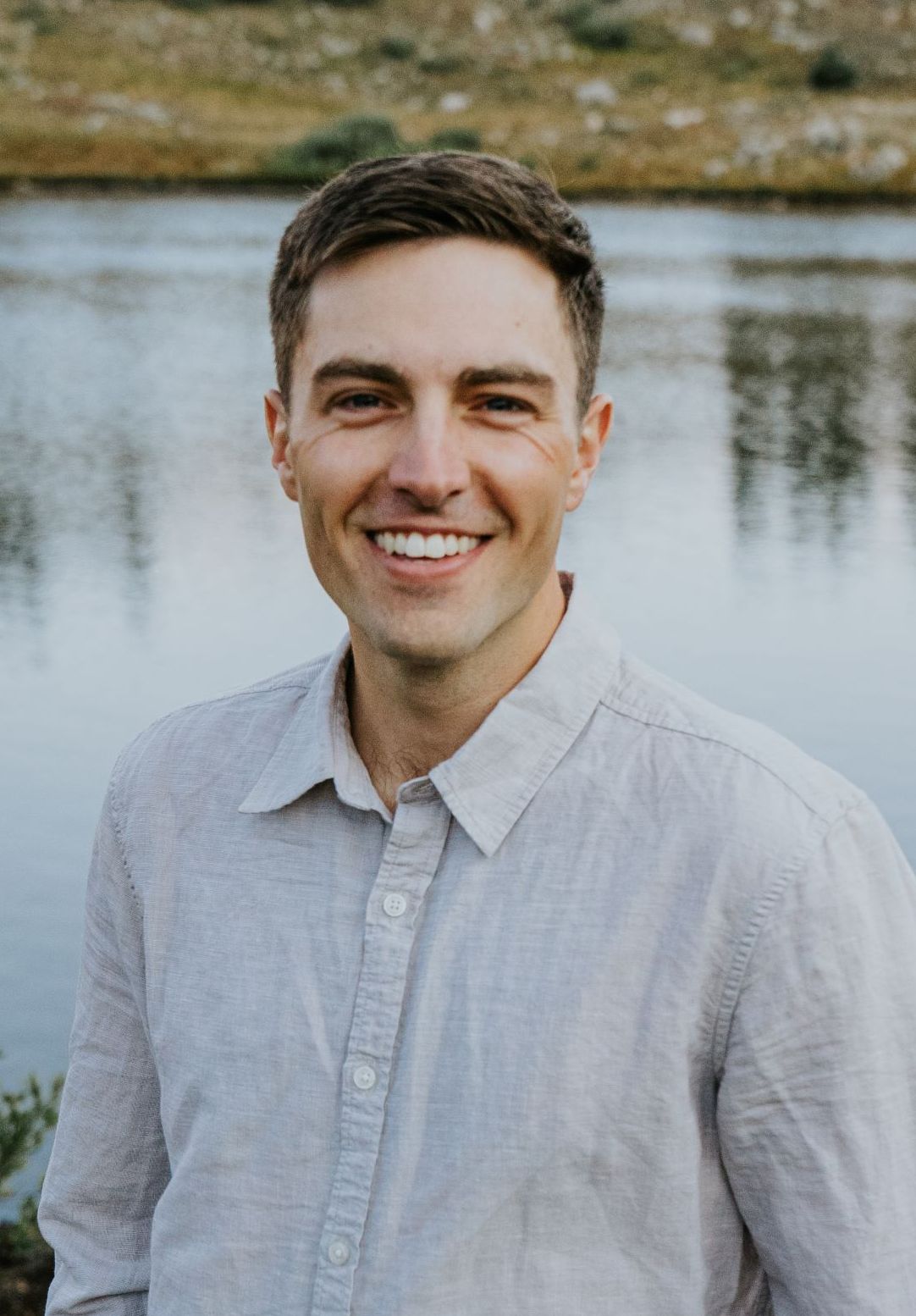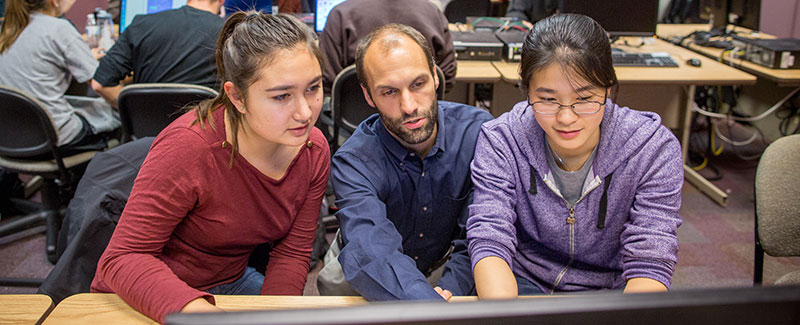“My graduate education has probably been the smartest choice I’ve made for myself,” says Jacob Nelson ’17 ’19G.
Nelson is a fourth-year PhD student in the Department of Computer Science and Engineering (CSE). His research involves distributed systems and using Remote Direct Memory Access (RDMA) technology to solve problems associated with coordination between multiple actors and processes.
In basic terms, distributed systems are those in which networked computers communicate by passing messages. RDMA facilitates this data sharing. Because the technology bypasses a computer's processor or operating system, it frees up resources, allowing for faster, more efficient performance.
“I like to use analogies when I’m explaining this,” he says. “Imagine you need butter for something you’re baking. You go to your neighbor’s house and knock on the door. Your neighbor stops whatever they’re doing and comes to the door. You ask for the butter, they go get it, and you go home. RDMA is effectively a key to the door. It allows you to go in the house and get the butter yourself. So now imagine that the butter is data. And instead of having to interact with a person—or a process—to access the data on a machine, we can just go get it ourselves.”
As a member of Lehigh’s Scalable Systems and Software Research Group, Nelson, who is advised by CSE associate professor Roberto Palmieri, studies the interactions of computer hardware with RDMA, as well as the applications of the technology and the development of best practices.
“We think we know what the utility is. We think we know that it’s fast,” he says. “But under what circumstances are we able to actually capture that performance? I’m trying to look at this in a holistic way to understand the entire capability of this technology as it pertains to building distributed systems.”
Just think of how many millions of people interact with services like Gmail, Facebook, and Google Docs, he says. Improving these distributed systems would allow such services to support more users on a smaller footprint, which saves computational—and economic—resources.
It’s an “exciting and powerful field,” he says, and one he discovered in his first year as a master’s student. “That was when I got my first taste of problems like, how do we build a system that’s capable of handling millions of users?”
In what he calls his “smartest choice,” he decided to continue with a PhD program, and recently, signed an offer to work at Google. He credits his research experience with landing him a position with one of the most influential companies in the world.
“Graduate school gives you the ability to choose your own adventure,” he says. “You get to dictate the direction that you’ll go, and it opens up a world of possibilities in terms of what you can do when it’s over. You’re going to be an expert. Your opinion will be valued. And your insights are going to make an impact.”


